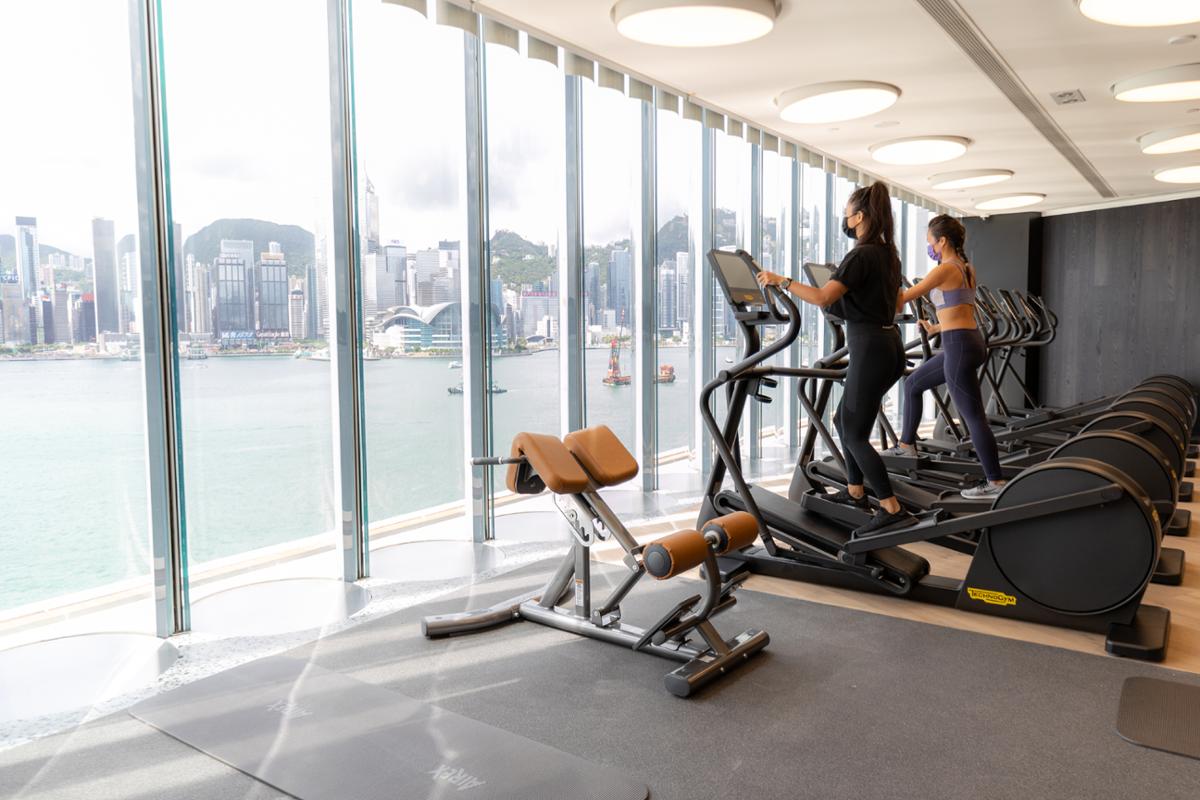see all jobs
Fitness First pulls out of Hong Kong as COVID closures wreak havoc
Evolution Wellness has closed all its Fitness First operations in Hong Kong. The pandemic’s impact and the government’s Zero COVID strategy proved too much for the operator, which has put its entire Hong Kong business into liquidation with Kroll.
Former Fitness First members are being offered the chance to migrate their membership across to clubs run by Pure Group.
“Fitness First, like Pure, takes its commitments to members very seriously and wanted to help them use their credit with Pure,” Gavin Black – interim CEO of Pure Group – told HCM. Black recently took over from founder and former CEO, Colin Grant, who has moved to be non-exec chair.
Another leading Hong Kong chain, Goji Studios, shut down all eight of its clubs at the end of 2021, while Pure Group itself is closing a single site in a cluster in Hong Kong – Centrium Yoga – as well as its OFC Fitness club in Singapore. Black says members will be able to transfer to other locations nearby. The adjustments to the portfolio reflect a drop in membership at Pure Hong Kong of 20 per cent since March 2020.
The fitness sector in Hong Kong has been burdened by a harsh financial climate since the first lockdown in March 2020 and for some business owners in the fitness industry, the combined effect of a diminishing client base, unrealistic rent bills and unplanned bank loans has led to insurmountable debts.
“Overall, I understand that over 300 boutiques have been lost over the course of the pandemic,” says Black.
Closures have occurred despite Hong Kong government support in the form of an Employment Support Scheme – two wage subsidies were given in 2020 with a third expected in April 2022 – and a Fitness Centre Subsidy Scheme (www.HCMmag.com/FCSS), however, some operators say the support has not been enough.
Since March 2020, personal trainer Nathan Solia has received HK$400,000 (£39,000) under the government’s fitness subsidy scheme. He runs Elite Personal Training, a boutique studio with three locations in Hong Kong.
Struggling to survive after ten combined months of closure, a 50 per cent client loss and unwanted bank loans, he says the subsidies have come up short.
“I paid HK$1,500,000 (£150,000) in rent over the 10 months, so with a HK$400,000 (£39,000) subsidy, it’s pretty easy to calculate that I’m losing money,” he told HCM. Even so, Solia says he’s been lucky because he was able to negotiate a 40 per cent discount on his rent.
“Because my facility is smaller than some of the others, I’ve been able to keep my head above water,” he said. “However, many of the business owners aren’t well equipped to communicate with landlords. Many say there’s no rent reprieve. How can landlords not give any discounts and yet the government tells us to shut down?”
Pure Group’s experience has been more positive. “Most landlords have been supportive,” says Black. “You will have seen Swire’s public announcement on waiving rent and management fees (www.hcmmag.com/Swire) – this approach has been consistent across the majority of our landlord partners,” he said. “Although there are a few who have unfortunately been unable or unwilling to support.”
Nathan Solia and Pure Group have both launched associations since the start of the pandemic to give the sector a voice in lobbying the government. Former Pure CEO, Colin Grant, formed the Hong Kong Alliance of Professional Fitness and Wellness Operators (UKAPFWO), while Solia established the Hong Kong Alliance for Fitness and Wellness, for small to medium operators, with the motto “Save HK Fitness''. A third group, the International Personal Trainers and Fitness Academy was set up by and for freelancers in the industry.
Solia says the strategy worked to a certain extent, as they gained more traction than other sectors, such as tennis and rugby. “The government started to understand how big the industry was when we all started showing up to these meetings, representing 1,800 different types of gym facilities,” he says.
Loans have helped keep business owners afloat and even with the fitness industry due to reopen tomorrow (21 April), there will still be challenges, due to the current lack of clarity over health and safety regulations – such as whether air purifiers will be required and if any other specific equipment will be necessary.
The three associations devised SafetFit100 alongside the government, in a bid to set standards and guidelines for air circulation within a facility. At this point, however, in-gym COVID regulations are still unconfirmed by the government.
Solia added: “Each of the purifiers is HK$6-8,000 (£6-£800), so do I go further into debt buying them? And what if they shut us down again in 12 months’ time? The government needs to show us some kind of subsidy that can help us to upgrade our facilities.
“We also need further rent relief, such as mandating landlords to freeze rent for six months, subsidies for trainers who are out of pocket, and in other areas, such as sports coaching, tennis, golf and so on, as they have also lost revenue. We also need subsidies to market our business so we can get them back on track.”
More News
- News by sector (all)
- All news
- Fitness
- Personal trainer
- Sport
- Spa
- Swimming
- Hospitality
- Entertainment & Gaming
- Commercial Leisure
- Property
- Architecture
- Design
- Tourism
- Travel
- Attractions
- Theme & Water Parks
- Arts & Culture
- Heritage & Museums
- Parks & Countryside
- Sales & Marketing
- Public Sector
- Training
- People
- Executive
- Apprenticeships
- Suppliers
















































